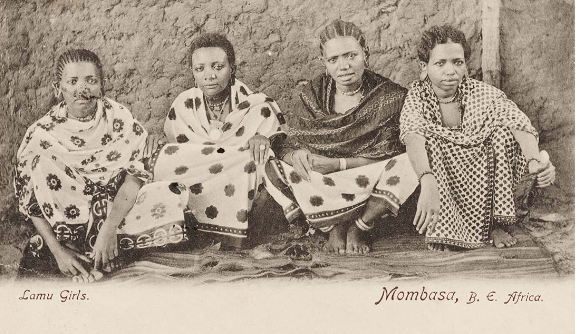
The Swahili people have been renowned for their vibrant culture and rich heritage for centuries. A discovery by a Kenyan anthropologist has shed light on a fascinating aspect of this culture: the role of women in Swahili society. According to Dr. Fatma Al-Amin, Swahili women were the holders of power in the past, and their contributions were vital to the growth and development of the Swahili civilization.
Dr. Al-Amin’s research is based on ancient DNA analysis of Swahili remains, which she conducted in collaboration with other researchers. Through this analysis, Dr. Al-Amin uncovered new evidence about the Swahili people’s ancestry, migration patterns, and social organization.
One of the most striking findings of Dr. Al-Amin’s research is the role of women in Swahili society. Contrary to the commonly held belief that Swahili society was patriarchal, Dr. Al-Amin’s research has shown that women held positions of power and authority in Swahili communities. According to Dr. Al-Amin, Swahili women were business owners, traders, and even political leaders.
Dr. Al-Amin’s research has also debunked some long-held myths about Swahili society. For example, it has been widely believed that the Swahili people were solely descendants of Arab and Persian traders who came to the East African coast centuries ago. However, Dr. Al-Amin’s DNA analysis has shown that the Swahili people have a much more diverse ancestry, with significant contributions from Bantu and Nilotic peoples.
Dr. Al-Amin’s research is groundbreaking, as it challenges the traditional narrative of Swahili history and opens up new avenues for research and understanding of this fascinating culture. It is also an important reminder of the vital role that women have played in shaping human societies throughout history.
As we celebrate the rich cultural heritage of the Swahili people, we must acknowledge the contributions of women in their civilization. Dr. Al-Amin’s research is a significant step in this direction and provides a new perspective on the Swahili people’s history and legacy.
Dr. Al-Amin’s research has also shed light on the economic and social power that Swahili women held. She has found evidence that women owned and managed businesses and engaged in international trade, making significant contributions to the Swahili economy. Swahili women were also involved in agriculture and fishing, activities that were critical to the livelihoods of their communities.
Dr. Al-Amin’s work challenges the notion that African societies were inherently patriarchal and sheds light on the diversity and complexity of social and gender relations in the region. It also highlights the importance of conducting interdisciplinary research that integrates archaeology, history, genetics, and anthropology to gain a more comprehensive understanding of the past.
The discovery of Swahili women’s power in the past is a timely reminder of the ongoing struggle for gender equality in Africa and beyond. Despite the gains that have been made in recent years, women in many parts of the continent still face significant barriers to achieving equality and accessing political, economic, and social power.
By recognizing the contributions of women in Swahili society and challenging traditional narratives of history, Dr. Al-Amin’s work provides an important foundation for advancing gender equality in Africa and beyond. It is a reminder that women have always been an integral part of human societies and have made significant contributions to shaping the world we live in today.
